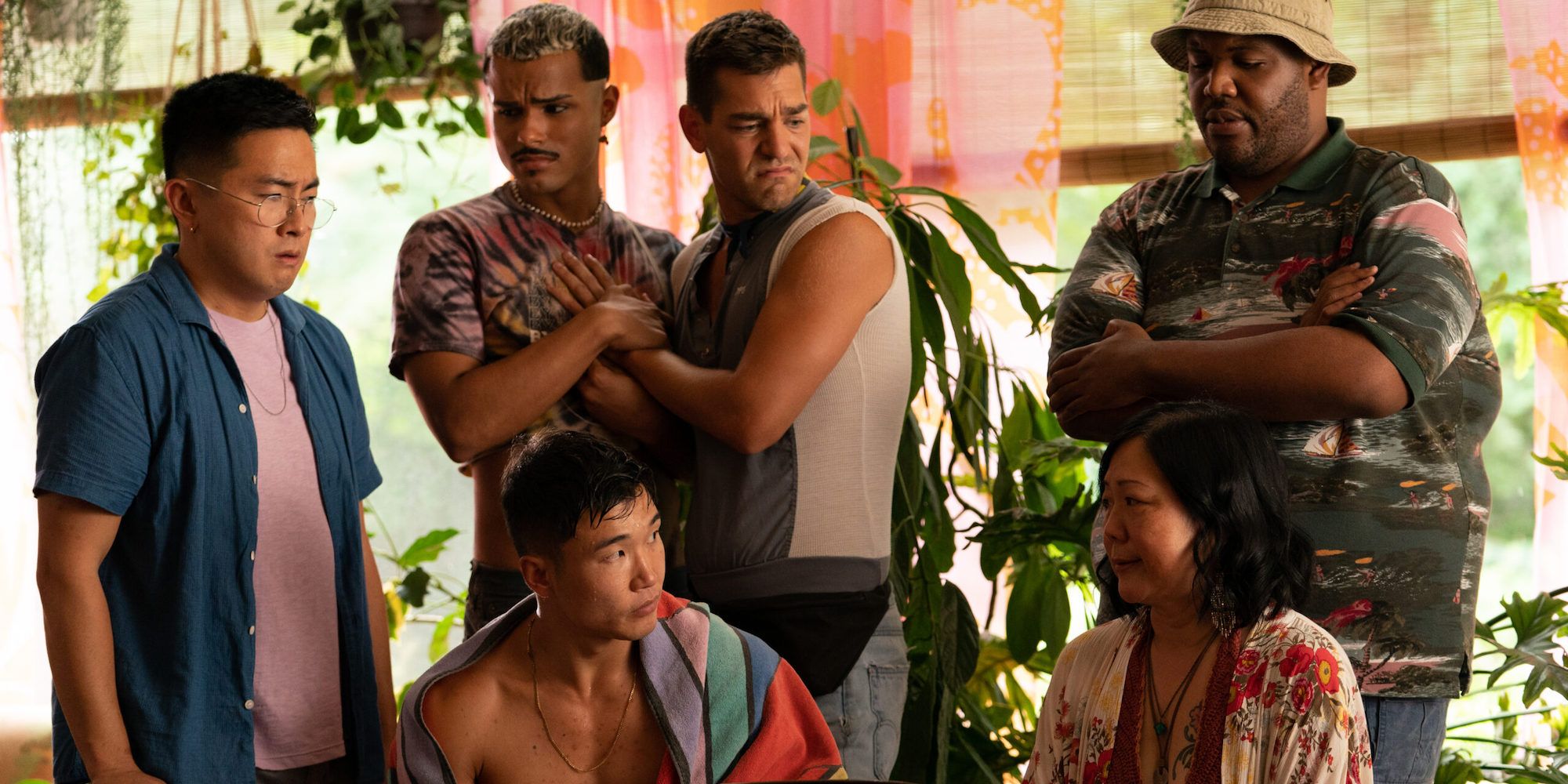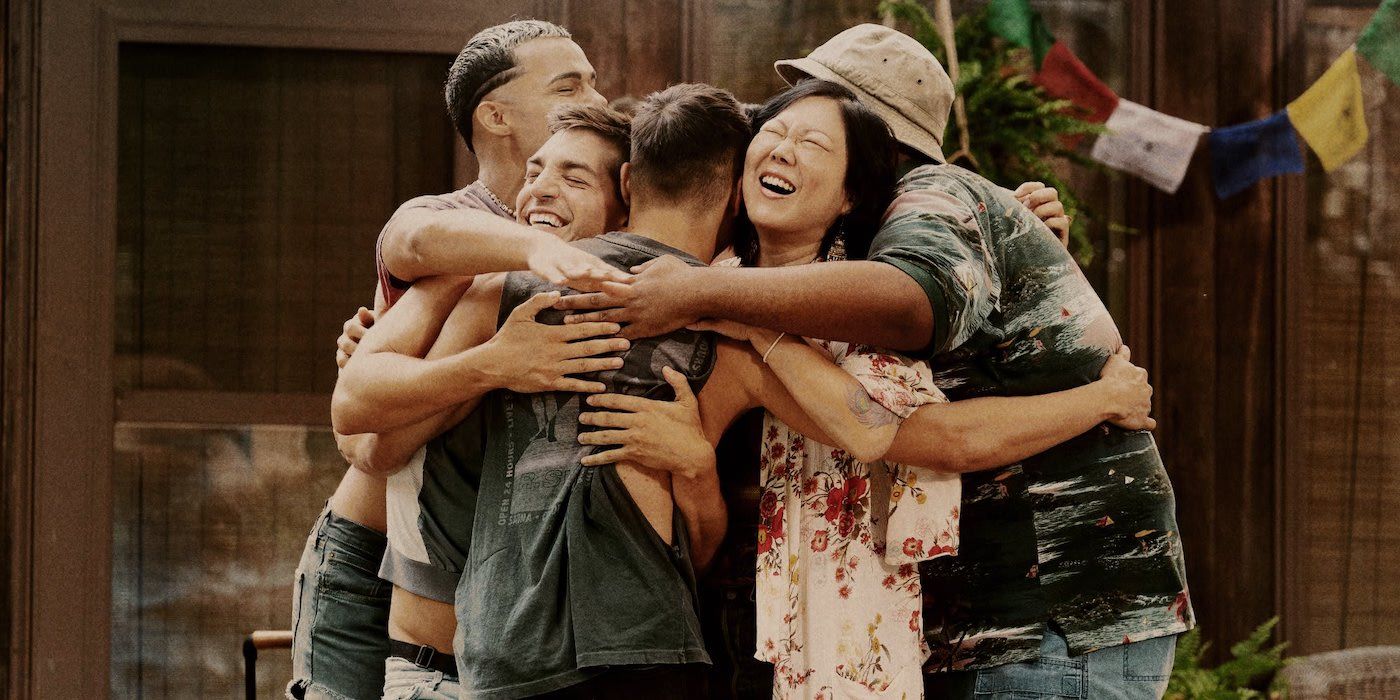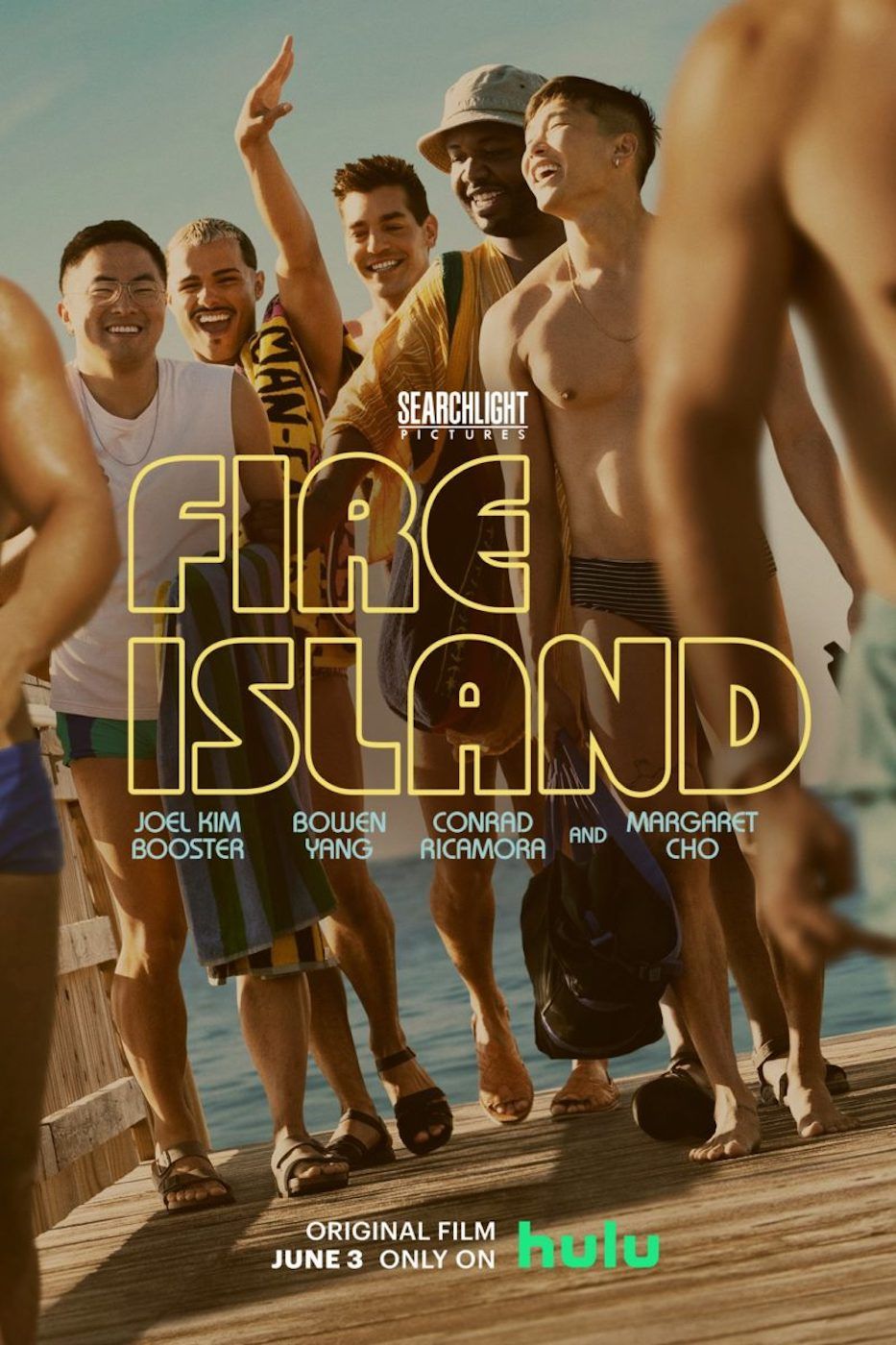It is a truth universally acknowledged that any adaptation of Jane Austen’s work is worth watching at least once. There will never be enough adaptations of the beloved books written by the English novelist as the themes and characters of her books continue to resonate. It is doubtful that Austen ever thought her books would hold so much weight in the 21st century, but it is even harder to imagine that her crown jewel, Pride and Prejudice, would be held in such high regard by a gay Korean American comedian named Joel Kim Booster, who loosely adapted Austen's novel in Fire Island. Booster’s story doesn’t need the conventions built by Austen, but his writing is a searing reminder that Austen’s tale is deeply rooted in universal themes that can and will resonate with anyone.
Fire Island, directed by Andrew Ahn, replaces the Bennetts with a chosen family of five gay men headed by their chosen matriarch Erin (Margaret Cho). The story follows these men and their antics as they visit queer haven, Fire Island, for what might be their last time together. Executive producer and writer Booster stars as Noah (effectively in the role of Elizabeth Bennett). His Mr. Darcy is played by How To Get Away With Murder’s Conrad Ricamora. In the Jane role is the iconic SNL star Bowen Yang, with James Scully playing his Mr. Bingley, Charlie. Matt Rogers and Tomás Matos team up as the raucous pair Luke and Keegan (Lydia and Kitty). Torian Miller rounds out the family unit as their Mary, Max. Zane Phillips rounds out the cast, playing the dastardly handsome and sleazy Dex, (aka, Wickham).
The ensemble melds together beautifully, establishing decades worth of friendship in mere minutes. Booster and Yang are particularly notable as the Liz/Jane duo and are remarkably adept at playing these roles. There is a biting quality to Yang’s comedy and sincerity to Booster that lends itself to their portrayals and one can’t help loving the casting decision. Rogers and Matos bring chaotic energy to the ensemble as the “younger siblings,” but an undercurrent of sweetness and naiveté still grounds the characters. Like Mary in the original text, Miller’s Max is underappreciated, undervalued, and underutilized. Cho’s Erin is an improvement from the literary matriarch; she is considerably less meddling and less of a focal point, which gives ample room for Noah to push the narrative forward.
The critical element to making this ensemble work is Booster’s naturalistic writing. Some adaptations of Austen’s work lean into “proper” speech and a communication style that not many actually utilize. Here, Booster doesn’t worry about refinement and lets his characters speak in a way that makes sense for them. Booster’s script does the best thing any modern adaptation of an Austen book could do: It maintains the framework, but fills in the gaps with a story that resonates with the writer. It would be easy for a novice of Austen’s work to miss the clear parallels to her story, which benefit Booster’s tale because it doesn't rely so heavily on Austen’s work to create tension or build momentum. Any fan of Pride and Prejudice will relish seeing the parallels, but the story feels more unexpected and refreshing due to it being a stripped-down version.
Fire Island takes the basic structure to tell the story of one man’s self-discovery. He must overcome the feeling of inadequacy in the face of many stressful situations that stem from being poor and gay. For the duration of his visit to Fire Island, Noah projects his insecurities onto others while being stubbornly prideful and slightly prejudiced towards the seemingly well-off vacationers. Booster zeroes in on elements of Austen's story that relate more personally to the gay experience, crafting an honest and sincere narrative that is also quirky, romantic and hilarious.
While the writing of Fire Island and the performances from its eclectic ensemble are fantastic, the film is also an overall sensational experience. It is no surprise that Ahn's production has beautiful cinematography that creates an effortlessly dream-like experience. The central locale offers its occupants a myriad of experiences — from the salacious, sensual, and serene, all of which are captured beautifully by cinematographer Felipe Vara de Rey. Noah’s fluctuating temperament is complemented nicely by his surroundings, with moments of respite paired with calming shots of him reading, taking in his surroundings and contemplating the transformative powers of the island. In times of crisis or drama, the constant sounds of a boisterous crowd, the strobe lights, the hypnotic beats of dance music, or the pounding of the sound of torrential rain fill the air and overwhelm the senses. Jay Wadley’s score, which ties everything together, reflects the modern setting, providing amusing interludes featuring classical orchestral music that would fit a period-accurate costume drama.
Fire Island is a mesmerizing, joyous experience and one of the best modern adaptations of Jane Austen’s Pride and Prejudice. The film has also solidified itself as one of the best romantic comedies to date. It is filled with plenty of hearty laughs, heartfelt sighs, and heartbreaking moments, making it worth revisiting repeatedly. The talent on display in front of and behind the camera cannot be understated, and as soon as the credits roll, viewers will be hungry for more from them.
Fire Island begins streaming on Hulu Friday, June 3. The film is 105 minutes long and is rated R for strong sexual content, language throughout, drug use and some nudity.




